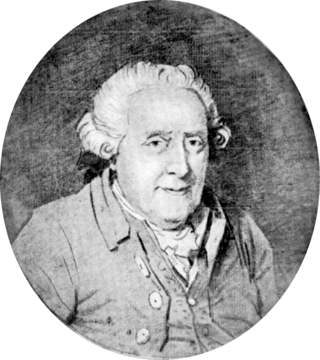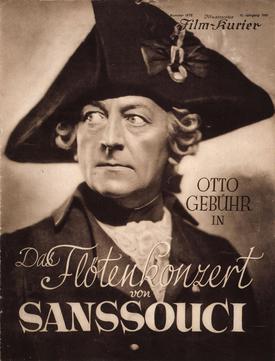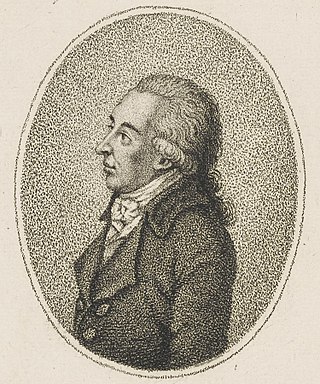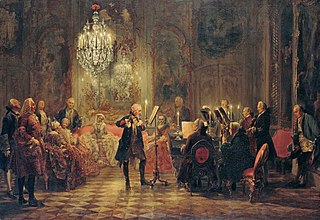| Mein Name ist Bach | |
|---|---|
| Directed by | Dominique de Rivaz |
| Screenplay by | Jean-Luc Bourgeois Leo Raat Dominique de Rivaz |
| Produced by | Karl Baumgartner Uta Ganschow Thanassis Karathanos Jean-Louis Porchet Gérard Ruey |
| Starring | Jürgen Vogel Vadim Glowna |
| Cinematography | Ciro Cappellari |
| Edited by | Isabel Meier |
| Music by | Frédéric Devreese |
Release date |
|
Running time | 97 minutes |
| Countries | Switzerland Germany |
| Language | German |
Mein Name ist Bach (English: Jagged Harmonies: Bach vs. Frederick II) is a 2003 Swiss film directed by Dominique de Rivaz. The premiere took place within the framework of the 56th Locarno Film Festival, which was held from August 6 to August 16, 2003. [1] It was Switzerland's submission to the 77th Academy Awards for the Academy Award for Best Foreign Language Film, but was not accepted as a nominee. [2] [3]
On the occasion of the birth of his grandchild Adam, Johann Sebastian Bach, whose eyesight is waning, visits his son Carl Philipp Emanuel Bach, who is employed at the court of the Prussian King Friedrich II.
The belligerent king wants to put the composer to the test and gives him a theme for improvisation, that he has previously had refined by his flute teacher Johann Joachim Quantz, who also teaches Friedrich's sister Amalie. Bach, however, exhausted by the journey, asks to be given some time. At court he meets his old friend Quantz again. Bach immediately returns to Leipzig, where he feels more comfortable, but is still fascinated by the theme proposed by the king.
While Amalie takes a liking to the novelty of the music of Bach's son Wilhelm Friedemann Bach, King Friedrich is reminded of the humiliation by his father Friedrich Wilhelm I. For example, Friedrich's father executed his childhood friend, Lieutenant Hans Hermann von Katte, after his adolescent son tried to escape with him. The non-conformist Wilhelm Friedemann, on the other hand, whom Bach considers the most talented of his sons, lives in conflict with the cautious down-to-earth attitude of his brother, who in turn suffers from his father's preference for Wilhelm Friedemann.
Bach organises a concert in honour of the king and proposes that they both play a composition based on the king's theme in a duet. Friedrich loses the rhythm and reacts angrily, accusing Quantz of being in league with Bach. Bach, however, does not let the theme of the king rest, and so he composes a six-part canon based on this theme, the Musikalisches Opfer .
Friedrich learns that Amalie has had an affair with Wilhelm Friedemann, but she defends herself against the reprimands of her brother. Amalie wants to continue the relationship, but Wilhelm Friedemann refuses to take her to Halle because he cannot offer her a life there that is appropriate for a princess.
Friedrich, who is about to move to his new palace Sanssouci in Potsdam, asks Bach to become his court composer. Bach refuses. Nevertheless, a more personal conversation takes place between the two of them, in which Friedrich tells the musician about the humiliation of his father in his childhood, while Bach accuses himself of having failed in bringing up his quarreling sons.
When Voltaire arrives to Sanssouci at the wish of Frederick II, Bach gets into the carriage at the customs station in his place.
Johann Friedrich Agricola was a German composer, organist, singer, pedagogue, and writer on music. He sometimes wrote under the pseudonym Flavio Anicio Olibrio.

Carl Philipp Emanuel Bach, also formerly spelled Karl Philipp Emmanuel Bach, and commonly abbreviated C. P. E. Bach, was a German Classical period composer and musician, the fifth child and second surviving son of Johann Sebastian Bach and Maria Barbara Bach.

Johann Joachim Quantz was a German composer, flutist and flute maker of the late Baroque period. Much of his professional career was spent in the court of Frederick the Great. Quantz composed hundreds of flute sonatas and concertos, and wrote On Playing the Flute, an influential treatise on flute performance. His works were known and appreciated by Bach, Haydn and Mozart.

Wilhelm Friedemann Bach was a German composer, organist and harpsichordist. He was the second child and eldest son of Johann Sebastian Bach and Maria Barbara Bach. Despite his acknowledged genius as an improviser and composer, his income and employment were unstable, and he died in poverty.
Johann Gottfried Bernhard Bach was a German musician. It is not known whether he composed, and his career as an organist is not in itself notable, but his life throws light on his famous father, the composer Johann Sebastian Bach. Johann Gottfried was the fourth child of Johann Sebastian Bach and Maria Barbara Bach to reach adulthood.
Empfindsamkeit or Empfindsamer Stil is a style of musical composition and poetry developed in 18th-century Germany, intended to express "true and natural" feelings, and featuring sudden contrasts of mood. It was developed as a contrast to the Baroque Affektenlehre, in which a composition would have the same affect throughout.

The Bach family refers to several notable composers of the baroque and classical periods of music, the best-known of whom was Johann Sebastian Bach (1685–1750). A family genealogy was drawn up by Johann Sebastian Bach himself in 1735 when he was 50 and was continued by his son Carl Philipp Emanuel.
Since the 18th century Berlin has been an influential musical center in Germany and Europe. First as an important trading city in the Hanseatic League, then as the capital of the electorate of Brandenburg and the Prussian Kingdom, later on as one of the biggest cities in Germany it fostered an influential music culture that remains vital until today. Berlin can be regarded as the breeding ground for the powerful choir movement that played such an important role in the broad socialization of music in Germany during the 19th century.
The Sonata in E♭ major for flute and harpsichord, probably by J. S. Bach, is a sonata in 3 movements:

The Flute Concert of Sanssouci is a 1930 German drama film directed by Gustav Ucicky and starring Otto Gebühr. It was part of the popular cycle of Prussian films. It was made at the Babelsberg Studios. The film's sets were designed by the art director Robert Herlth and Walter Röhrig. Location filming took place around the Berlin area including at the Sanssouci Palace in Potsdam.

Friedemann Bach is a 1941 German historical drama film directed by Traugott Müller and starring Gustaf Gründgens, Leny Marenbach and Johannes Riemann. The film depicts the life of Johann Sebastian Bach's son Wilhelm Friedemann Bach. It is based on Albert Emil Brachvogel's novel Friedemann Bach. Wilhelm Friedemann Bach is shown as a gifted son trying to escape his father's shadow.
The following is a chronological list of classical music composers who lived in, worked in, were German citizens, or who grew up and made their careers in Germany.
Christoph Nichelmann was a German composer and harpsichordist. He was second keyboard player in the Royal Ensemble of Frederick the Great.

Friedrich Wilhelm Rust was a German violinist, pianist and composer. He hailed from a renowned musical family in Germany. He was the father of the pianist and organist Wilhelm Karl Rust and the grandfather of Thomaskantor, composer and Bach scholar Wilhelm Rust.
The Carl Philipp Emanuel Bach Chamber Orchestra was a German chamber orchestra, founded in 1969 in Berlin, dedicated to the music of Carl Philipp Emanuel Bach and his contemporaries.
The concerto transcriptions of Johann Sebastian Bach date from his second period at the court in Weimar (1708–1717). Bach transcribed for organ and harpsichord a number of Italian and Italianate concertos, mainly by Antonio Vivaldi, but with others by Alessandro Marcello, Benedetto Marcello, Georg Philipp Telemann and the musically talented Prince Johann Ernst of Saxe-Weimar. It is thought that most of the transcriptions were probably made in 1713–1714. Their publication by C.F. Peters in the 1850s and by Breitkopf & Härtel in the 1890s played a decisive role in the Vivaldi revival of the twentieth century.

Frederick the Great Playing the Flute at Sanssouci or The Flute Concert is an 1852 oil on canvas history painting by the German painter Adolph Menzel. It depicts Frederick the Great, King of Prussia playing the flute at an evening concert at Sanssouci and is now in the Alte Nationalgalerie in Berlin.
The Rheinische Kantorei is a German vocal ensemble of baroque music accompanied by an instrumental ensemble called Das Kleine Konzert.